Keynote Presenters
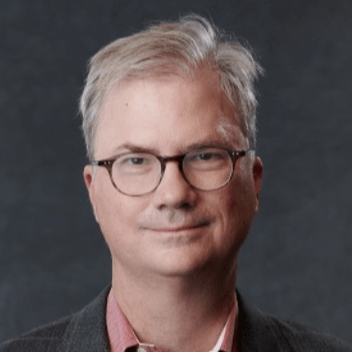
Holden Thorp
Editor-in-Chief of Science
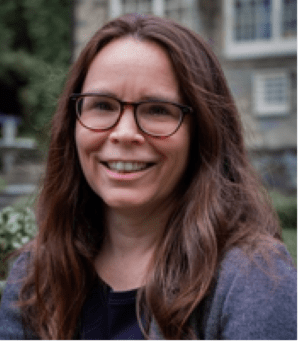
Principal Deputy Assistant Secretary (Acting Assistant Secretary), Office of Fossil Energy and Carbon Management, U.S. Department of Energy
Platform Panel Discussion Speaker
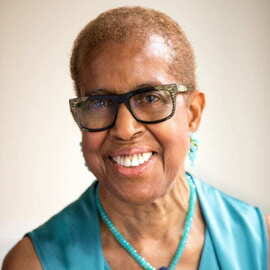
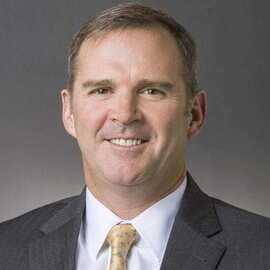
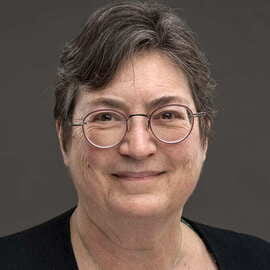
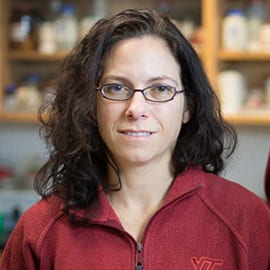
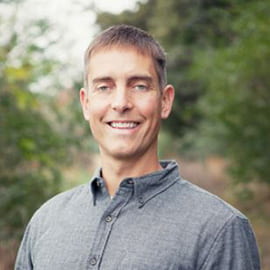
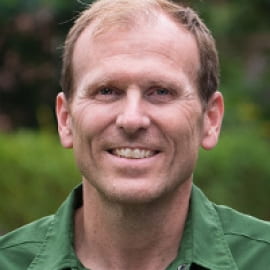
Speaker Bios
Dr. Lilia A. Abron, P.E., BCEE is the CEO/President and Founder of PEER Consultants, P.C. (PEER). She is the first African-American woman in the nation to earn a Ph.D. in Chemical Engineering and the first African-American to start an engineering consulting firm focused on environmental issues and concerns relating to the physical and human environments. To help advance the condition of the impoverished sector worldwide using sustainability measures, Lilia also founded PEER Africa Western Cape, CC in 1995.
PEER is a 44-year-old, full-service environmental and civil engineering consulting firm. With headquarters in Washington, DC and additional offices in Baltimore, MD, Burlington, MA, and Clearwater, FL, PEER is strategically located to serve its clients throughout the U.S. Since 1978, the firm is focused on providing transformative, appropriate, and sustainable solutions for its clients’ challenging environmental problems. Over the last 44 years, as an award-winning firm, PEER Consultants has grown to an average annual revenue of $15 million and has successfully worked on more than 1,600 contracts. We have expanded offices into South Africa and developed design-build sustainable solutions internationally, while remaining at the forefront of transformative issues in the areas of water & wastewater engineering, environmental engineering, and sustainability nationally as well.
Dr. Abron holds a B.S. degree in Chemistry from Lemoyne College in Memphis, TN, with Distinction; an M.S. degree in Environmental and Sanitary Engineering from Washington University in St. Louis; and, in 1972, Dr. Abron obtained her Ph.D. in Chemical Engineering from the University of Iowa.
Professionally, she has been bestowed the highest honor – Distinguished Member, Class of 2021 – of the American Society of Civil Engineers (ASCE). Dr. Abron is an elected member of the prestigious National Academy of Engineering (NAE), the American Academy of Arts & Sciences, Tau Beta Pi, DC Alpha Chapter as an Eminent Engineer, and she is a History Maker®. As of January 2021, she became President of The American Academy of Environmental Engineers and Scientists (AAEES).
Her civic and social responsibility activities range from being an invited member of the International Women’s Forum; inducted member of Delta Sigma Theta, a social services sorority; serving on several college of engineering advisory boards; and, she is a member of the Board of Trustees at LeMoyne-Owen College, her undergraduate alma mater.
She is the mother of three males, and has six grandchildren, only one of which is a female.
Charles B. Bott joined HRSD in 2009 and is the Director of Water Technology and Research. He manages technology innovation and R&D for HRSD’s sixteen wastewater treatment plants (249 MGD combined capacity). Dr. Bott is also an Adjunct Professor in the Departments of Civil and Environmental Engineering at Virginia Tech and Old Dominion University. He was formerly an Associate Professor in the Department of Civil and Environmental Engineering at the Virginia Military Institute (VMI) and a consulting engineer with Parsons Engineering Science. Dr. Bott has a BS in Civil Engineering from the Virginia Military Institute, a MS in Environmental Engineering from the Johns Hopkins University, and a Ph.D. in Civil and Environmental Engineering from Virginia Tech. He is a fellow of the Water Environment Federation, a Professional Engineer in Virginia, a Board Certified Environmental Engineer, and a licensed Wastewater Treatment Plant Operator – Virginia Class I.
Janet Hering is the Director of the Swiss Federal Institute of Aquatic Science and Technology (Eawag) and Professor at the Swiss Federal Institutes of Technology (ETH) in Zürich and Lausanne. Previously, she was on the faculties of Caltech and UCLA. She is a member of the U.S. National Academy of Engineering. Her research interests include knowledge exchange at the interface of science with policy and practice, trace element biogeochemistry, and water treatment for the removal of inorganic contaminants. As Director of Eawag, she oversees a staff of over 500, including ca. 175 researchers and 100 technical staff members. Eawag hosts over 100 doctoral students conducting their thesis research. Research at Eawag focuses broadly on water and the water environment, encompassing the continuum from relatively unperturbed aquatic ecosystems to fully engineered water and wastewater management systems. In addition to its research activities, Eawag’s mandate encompasses both education and expert consulting.
Amy Pruden is the W. Thomas Rice Professor of Civil and Environmental Engineering at Virginia Tech. Her research focuses on bringing a microbial ecological perspective to understanding and advancing design and management of environmental systems. Pruden is widely known for her research advancing understanding of antibiotic resistance genes (ARGs) as environmental contaminants. Her research has been funded by The National Science Foundation, US Department of Agriculture, Water Research Foundation, the Alfred P. Sloan Foundation, and the U.S. Centers for Disease Control and focuses on advancing practical means of antibiotic resistance monitoring, mitigation, and risk assessment in wastewater, recycled water, and other water systems. Pruden is currently the Co-Principal Investigator with Peter Vikesland on a Partnership for International Research and Education (PIRE) grant with the goal of fostering interdisciplinary international collaboration towards identifying barriers to antibiotics and antibiotic resistance in wastewater, recycled water, and affected receiving environments, including surface water, groundwater, and distribution systems. She is also serving on two National Academy of Sciences Engineering and Medicine (NASEM) committees: the Environmental Health Matters Initiative and the One Health Action Collaborative. Previously she served on the NASEM committee on management of Legionella in Water Systems and co-authored a consensus report. She has authored over 150 peer-reviewed scientific journal articles and currently serves as an Associate Editor of Environmental Science & Technology. Pruden is the recipient of the Presidential Early Career Award in Science and Engineering, the Paul L. Busch Award for innovation in water research, and was recently named a fellow of the International Water Association.
Erik Rosenfeldt is an Associate Vice President at Hazen and Sawyer, and the Firm’s Director of Drinking Water Process Technologies and Director of Drinking Water Innovations. He has over 25 years of Drinking Water Experience addressing drinking water quality challenges, implementing conventional and advanced technology to address challenges ranging from disinfection byproducts to emerging contaminants like algal toxins and PFAS. Dr. Rosenfeldt received a BS in Chemical Engineering from Washington University in St. Louis (go Bears) and his MS and PhD in Civil and Environmental Engineering from Duke University. Before starting with Hazen, he was an assistant professor at the University of Massachusetts, Amherst, in the Department of Civil, Environmental, and Water Resources Engineering, where his research focused on advanced oxidation in drinking water and reuse applications.
Holden Thorp became Editor-in-Chief of the Science family of journals on 28 October 2019. He came to Science from Washington University, where he was provost from 2013 to 2019 and where he is Rita Levi-Montalcini Distinguished University Professor and holds appointments in both chemistry and medicine. Thorp joined Washington University after spending three decades at the University of North Carolina at Chapel Hill (UNC), where he served as the 10th chancellor from 2008 through 2013. A North Carolina native, Thorp started at UNC as an undergraduate student and earned a bachelor of science degree in chemistry with highest honors in 1986. He earned a doctorate in chemistry in 1989 at the California Institute of Technology, working with Harry B. Gray on inorganic photochemistry. He completed postdoctoral work at Yale University with Gary W. Brudvig, working on model compounds and reactions for the manganese cluster in the photosynthetic reaction center. He holds an honorary doctor of laws degree from North Carolina Wesleyan College and is a fellow of the National Academy of Inventors.
Gary White is an observer, an innovator, and a passionate problem-solver. He has created solutions that have empowered millions of people in need with access to safe water and sanitation.
Gary is the CEO and Co-founder of Water.org and of WaterEquity, nonprofit organizations dedicated to empowering people in the developing world to gain access to safe water and sanitation. Water.org is the resulting organization of the July 2009 merger between WaterPartners, co-founded by Gary in 1990, and H2O Africa, co-founded by actor Matt Damon. Gary developed Water.org’s WaterCredit Initiative, creating new financing options for poor populations to meet their water supply and sanitation needs. He also developed and now leads WaterEquity, the first-ever impact investment manager dedicated to ending the global water crisis in our lifetime, with an exclusive focus on raising and deploying capital to water and sanitation businesses that serve people living in poor communities throughout Asia, Africa, and Latin America. Gary’s work has brought clean water and sanitation to over 43 million people globally.
Bringing 30 years of experience to work on solving the global water and sanitation crisis, Gary is a leading advisor in the water and sanitation space, counseling organizations such as the Skoll Foundation, MasterCard Foundation, PepsiCo Foundation, IKEA Foundation, Caterpillar Foundation, Catalyst 2030, and the Clinton Global Initiative on responses to the global water crisis. He is also a founding board member of the Millennium Water Alliance and Water Advocates.
Named to TIME magazine’s list of the world’s 100 most influential people, Gary has been awarded the Forbes 400 Lifetime Achievement Award for Social Entrepreneurship, named to the World Economic Forum’s Global Agenda Council on Water, and selected as Schwab Foundation Social Entrepreneur and a Skoll Foundation Social Entrepreneur.
Gary’s educational credentials include three degrees in Civil and Environmental Engineering from Missouri University of Science & Technology (BS, MS) and the University of North Carolina at Chapel Hill (MS).
Jennifer Wilcox, the Principal Deputy Assistant Secretary (Acting Assistant Secretary) in the Office of Fossil Energy and Carbon Management at DOE, was the Presidential Distinguished Professor of Chemical Engineering and Energy Policy at the University of Pennsylvania. As a senior fellow at the World Resources Institute, she led WRI’s Carbon Removal Program.
Having grown up in rural Maine, Wilcox has a profound respect and appreciation of nature. That appreciation permeates her work; she focuses on minimizing the negative impacts of humankind on our natural environment. Wilcox holds a Ph.D. in Chemical Engineering and an M.A. in Chemistry from the University of Arizona and B.A. in Mathematics from Wellesley College.
Wilcox’s research takes aim at the nexus of energy and the environment, developing both mitigation and adaptation strategies to minimize negative climate impacts associated with society’s dependence on fossil fuels. She has served on committees of the National Academy of Sciences and the American Physical Society to assess carbon capture methods and impacts on climate. She is the author of the first textbook on carbon capture, Carbon Capture, published in March 2012. She co-edited the CDR Primer on carbon dioxide removal in 2021.